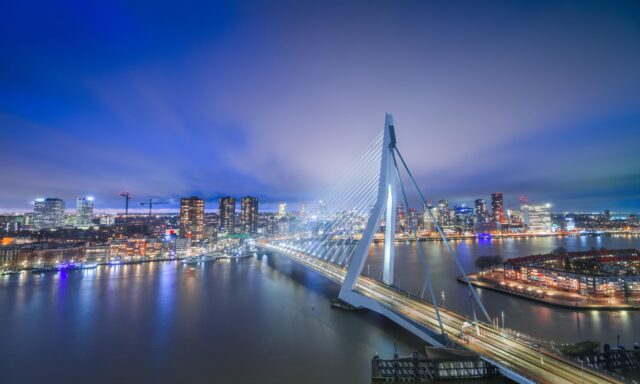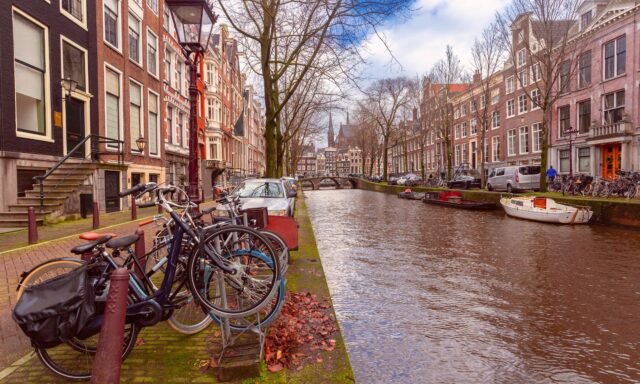Why establish your business in the Randstad region?
The Randstad region is a vibrant economic area encompassing the most populous Dutch cities: Amsterdam, Rotterdam, The Hague and Utrecht. The cities are all close to each other, with Amsterdam-Rotterdam the furthest apart, with some 78km between them. This is not only the most developed region in the Netherlands but also the most cosmopolitan in terms of the number of international companies and expats from all over the world.
The labour market
When looking for an ideal place to open a new office or move headquarters, one of the first things CEOs ask themselves is: “What does the local labour market look like? Will we be able to find the employees we need for our growing business?”
In 2022 the Netherlands had 10,156,900 workers in total. 47.5% of them were employed specifically in the Randstad region, with the highest number being in the Rotterdam area.
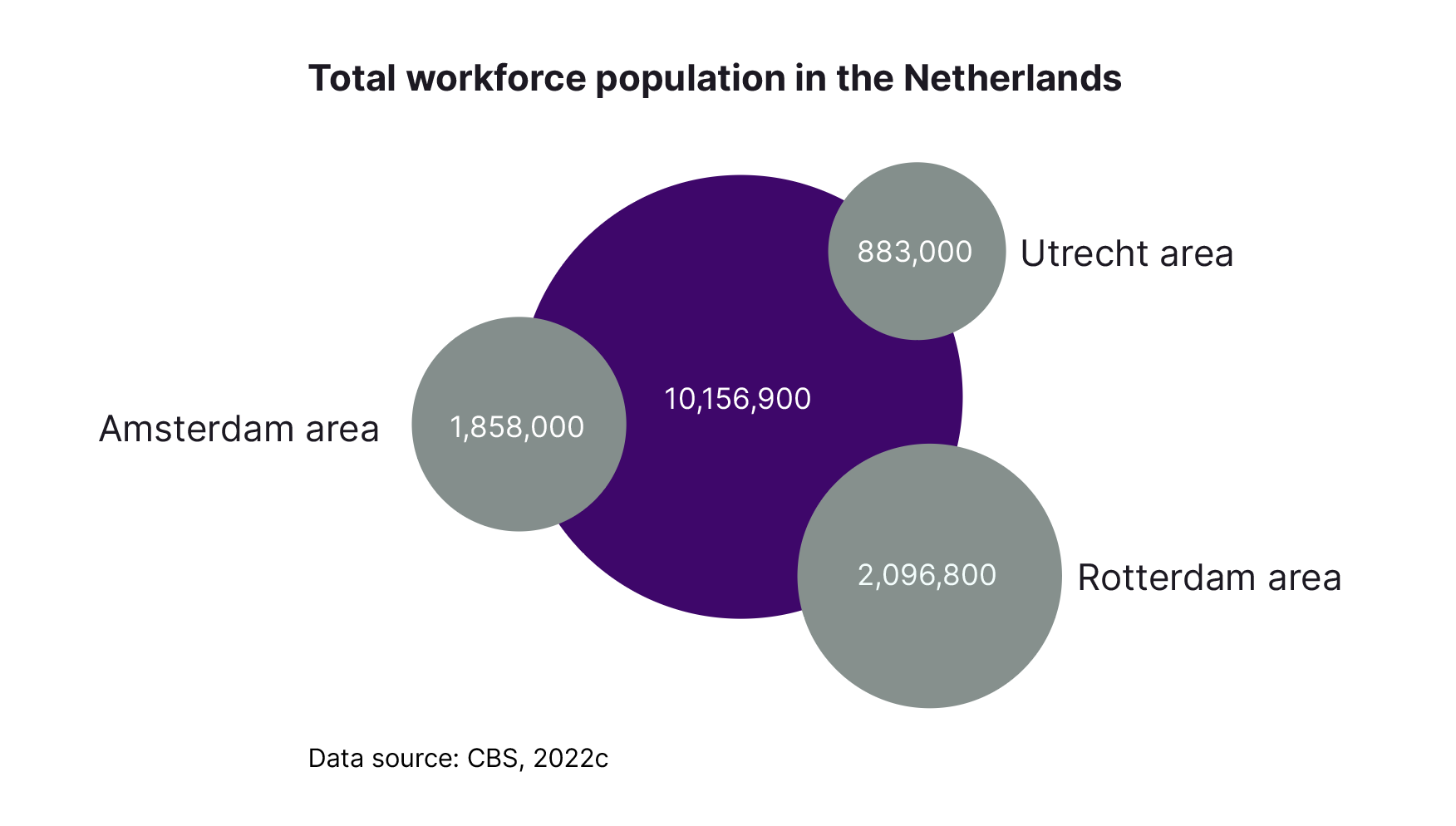
Language skills of the Randstad workforce
International companies operate in multiple languages, which is why employing multilingual employees is a must. Most international companies in the Randstad area have English as their official language but, depending on the market in which they operate, other languages can also be necessary.
Following the growth of multinational companies, the need for fluent English speakers has also risen. Approximately 90% of the Dutch population claims to speak at least conversational level and the Netherlands is placed first when comparing the English-speaking skills of 100 non-English speaking countries.
Are you looking to scale up your team with permanent or temporary employees?
Moreover, the Netherlands, and especially the Randstad area, is home to many internationals with native skills in their mother tongue. A significant portion of them are also fluent in English. The graph below shows the number of internationals of working age (20 to 64) registered in the Netherlands in 2023.
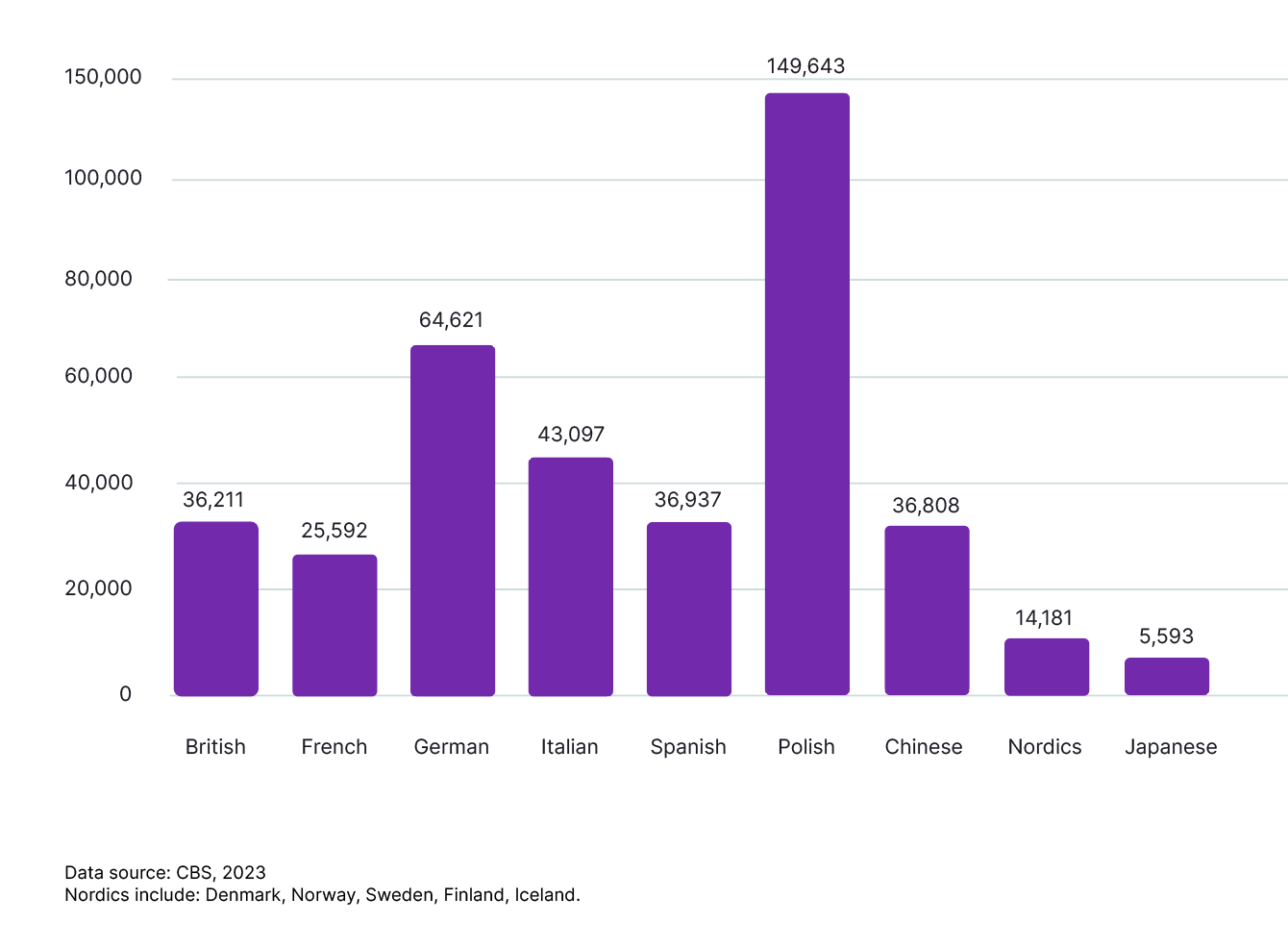
Education level in Randstad
The Dutch higher education system was ranked 4th best in the world in 2020. After compulsory secondary education, Dutch pupils are presented with three different education paths, based on their skills, interests and general success in their previous education. MBO prepares students for practical, more craft-related work such as carpentry or hairdressing. HBO refers to a bachelor-level qualification at a university of applied science. Students who graduate from WO are more research-oriented and may hold a BA or BSc.
The Netherlands is also one of the top-ranking countries for foreign students. Nearly 123,000 international students from both EU and non-EU countries were enrolled in Dutch universities in 2022/2023. High university ranking, numerous courses offered in English and lower costs of education compared to the US and UK make the Netherlands very attractive for international talent. One year after finishing their study program 50% of international students are typically still in the Netherlands. The stay rate falls to about 25% five years after graduation.
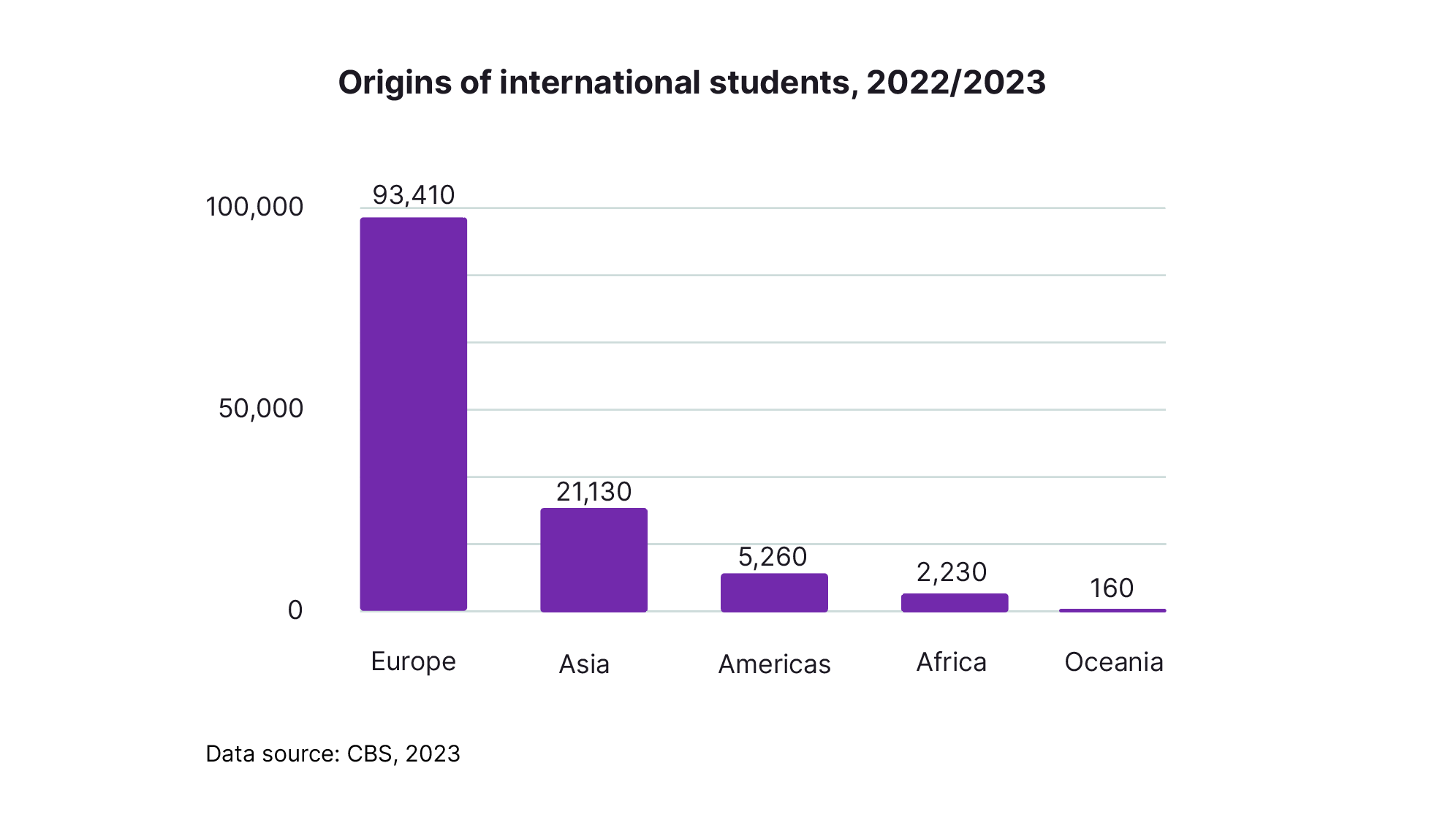
International companies in the Netherlands
The Netherlands has long been an attractive base for international companies. One in fifty companies in the Dutch market are multinationals, and two in five employees in the Netherlands work for them. Some of them specifically choose the Randstad region to open their branch office, not only because of the proximity to ports and two international airports but also because of the multilingual workforce.
Whether you want to set up your first people processes, or need to address immediate HR concerns; we offer a comprehensive HR consultancy service to solve your business’s unique obstacles.
When it comes to sector distribution of foreign-owned multinationals, in 2021 they were most represented in the wholesale and retail sector (35%), followed by specialised business services and manufacturing.
The list of the top 10 countries controlling the majority of foreign-owned multinationals in the Netherlands has remained relatively consistent over time.
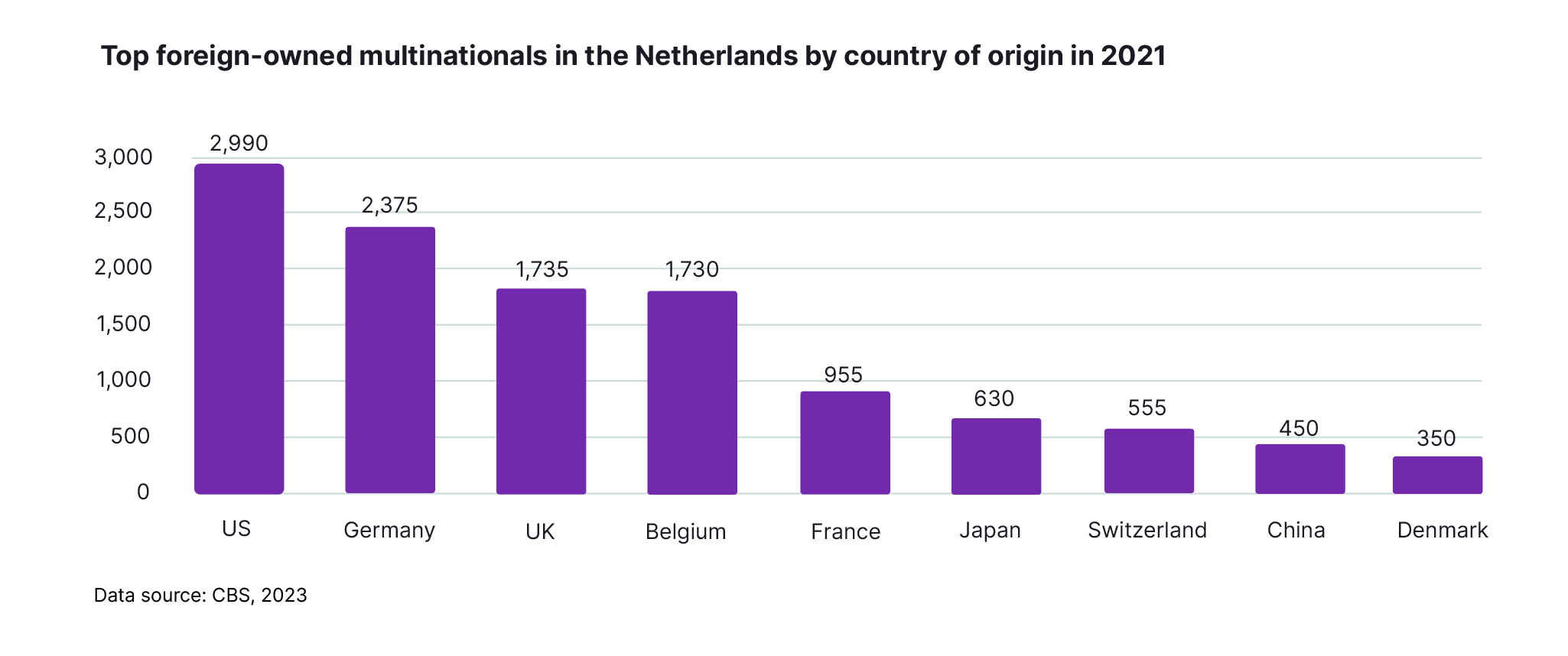
How multilingual employees add value to your company
As growing numbers of companies seek to expand globally, having multilingual employees on board has become a major competitive advantage.
More efficient work
According to recent research, the ability to speak multiple languages is positively linked to processing information at a faster speed, multitasking and problem-solving. In the process of learning and speaking additional languages, our brains form new neural pathways, allowing us to sift through irrelevant information more quickly. Multilingual employees can multitask effectively and work faster, leading to improved levels of productivity.
Cultural awareness
Part of successful communication is the ability to empathise with other people and understand their points of view – a skill that comes naturally to multilingual employees. People who speak more than one language are more likely to have grown up or lived in multiple countries, exposing them to all types of people, values and cultures. This cultural awareness is not a skill that can easily be taught: rather, it’s a soft skill that people pick up from their surroundings. If your company works with international customers, suppliers or partners, multilingual employees will help keep communication problems at bay.
Supporting your international growth
Multilingual employees can communicate with potential new business partners abroad in their native language, facilitating more successful discussions. They are also likely to have extensive networks abroad that could help with business development.
Overview of multilingual candidates
Every year, thousands of multilingual international individuals arrive in the Netherlands, many eager to begin their job search right away. At Adams Multilingual Recruitment, we specialise in matching these candidates with suitable roles in international companies.
Below is an overview of the annual numbers for newly registered native and fluent speakers of the most sought languages in the Netherlands via Adams Multilingual Recruitment.
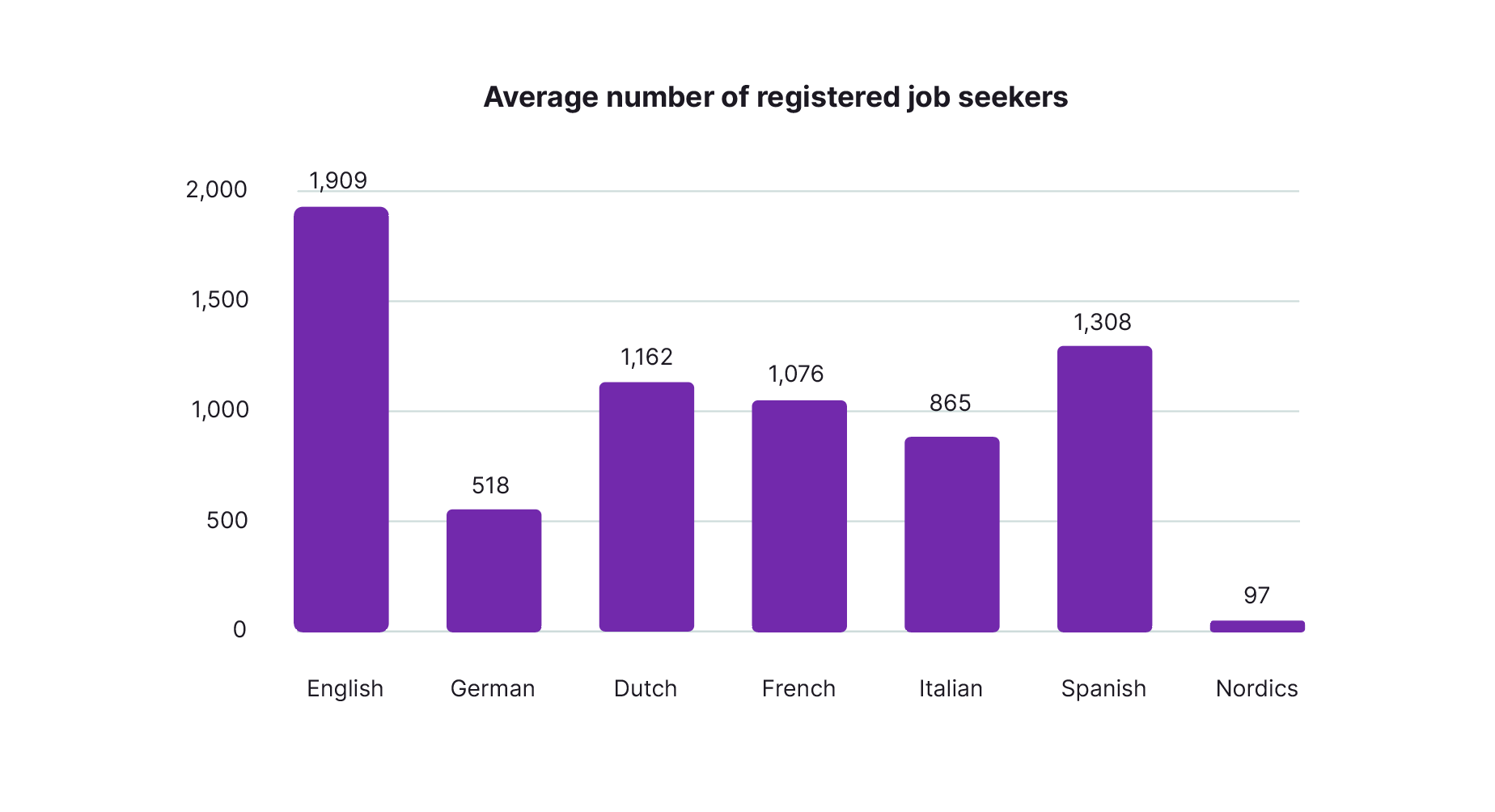
Salaries in the Netherlands
Knowing how much you need to pay talent in the local marketplace is essential for any international company. The Netherlands has a legal minimum salary, adjusted twice per year to reflect inflation. In 2024, the minimum hourly wage for all employees aged 21 years and older is €13.27. To attract the best talent, you should know how much above the minimal salary you need to offer.
Several factors come into play when determining the salary level to offer, including the candidate’s education, relevant experience, specific skills, and the nature of the position and its responsibilities. This article provides an overview of the average gross salary ranges in the Netherlands for a variety of professions, taking into account the years of experience of the potential employee.
Are you an HR executive, hiring manager, or professional? The Adams Hiring Compass is packed with relevant insights and valuable resources designed to help you navigate recruitment in the Netherlands.
Competitive benefits and allowances
The question of how much you should pay your new employees is just one of several things to weigh up when you are searching for talent in the Netherlands. Especially when opening a Dutch office for the first time, it’s important to familiarise yourself with the mandatory benefits a company should offer as well as the nice-to-haves. We have written a detailed article that outlines the standard benefits and allowances in the Netherlands.
Ready to expand your business to the Randstad area?
Whether it’s the ease of finding multilingual, skilled employees, the strategic advantage of its location, or the straightforwardness of integrating into a well-established economic ecosystem, the Randstad area offers a unique blend of opportunities that can cater to the ambitions of any business, big or small.
Are you planning to open a new office here, or looking to enhance your workforce with multilingual professionals? We’re here to support you in attracting and retaining the right talent.
